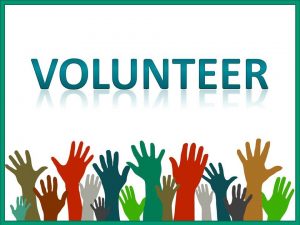We have a huge culture of volunteering here in the UK. Statistics show that 25% of adults get involved in volunteering at least once a month, with many giving much more time to their chosen cause. Many voluntary organisation support the most vulnerable people in society. When it comes to DBS and volunteers, requirements depend on the role.
 DBS and Volunteers – Who Needs Checked?
DBS and Volunteers – Who Needs Checked?
Voluntary organisations have to stick to the same rules as everyone else. There is lots of guidance online from the government website, but it is fairly wordy. You don’t need to be an expert on the law, knowing the basics is sufficient. The role you take on will determine which type of DBS check you need. If, for example you volunteer in a charity finance office, you might be asked for a standard disclosure. For roles involving children or vulnerable adults, you’ll be asked for an enhanced disclosure.
Rules about DBS check as a volunteer
Any organisation you volunteer with should have processes in place to get checks done on their volunteers. They will guide you through the application process. The good news is that in most cases, checks on volunteers are free of charge. Charities and other organisations also have their own rules about how often checks have to be done. Most organisations choose to repeat DBS checks every three to five years.
Applying for a DBS as a volunteer
The process to get a DBS for a volunteer is the same as for a paid member of staff. First, the volunteer shows identity documents and other paperwork to prove who they are. Someone at the volunteer organisation checks the documents and signs to say they are in order. The volunteer completes the application form, and sends it off to the DBS for checking. After around three weeks, the DBS sends the form back to the applicant who can then show it to the voluntary organisation. In Scotland and Northern Ireland there are different organisations running checks on volunteers but the process is broadly similar.
Starting volunteering without your DBS check
Many charities and voluntary organisations are crying out for volunteers and will want you to start as soon as possible. You might be restricted in what you do until the paperwork comes through. For example, if you’re volunteering as a sports coach, you may be allowed to run coaching sessions with other coaches in attendance before your certificate is issued. You’re unlikely to be allowed to do private one to one coaching without a DBS check though. There’s no “fast-track” service for DBS checks, but you can do your bit to speed things up by having your form carefully checked for errors before submitting it.
If you volunteer for several organisations, think about signing up for the DBS update service, which provides online access to the DBS system. If you move to another voluntary role which requires the same level of disclosure, you can simply log into to the system and see up to date DBS information on your record.